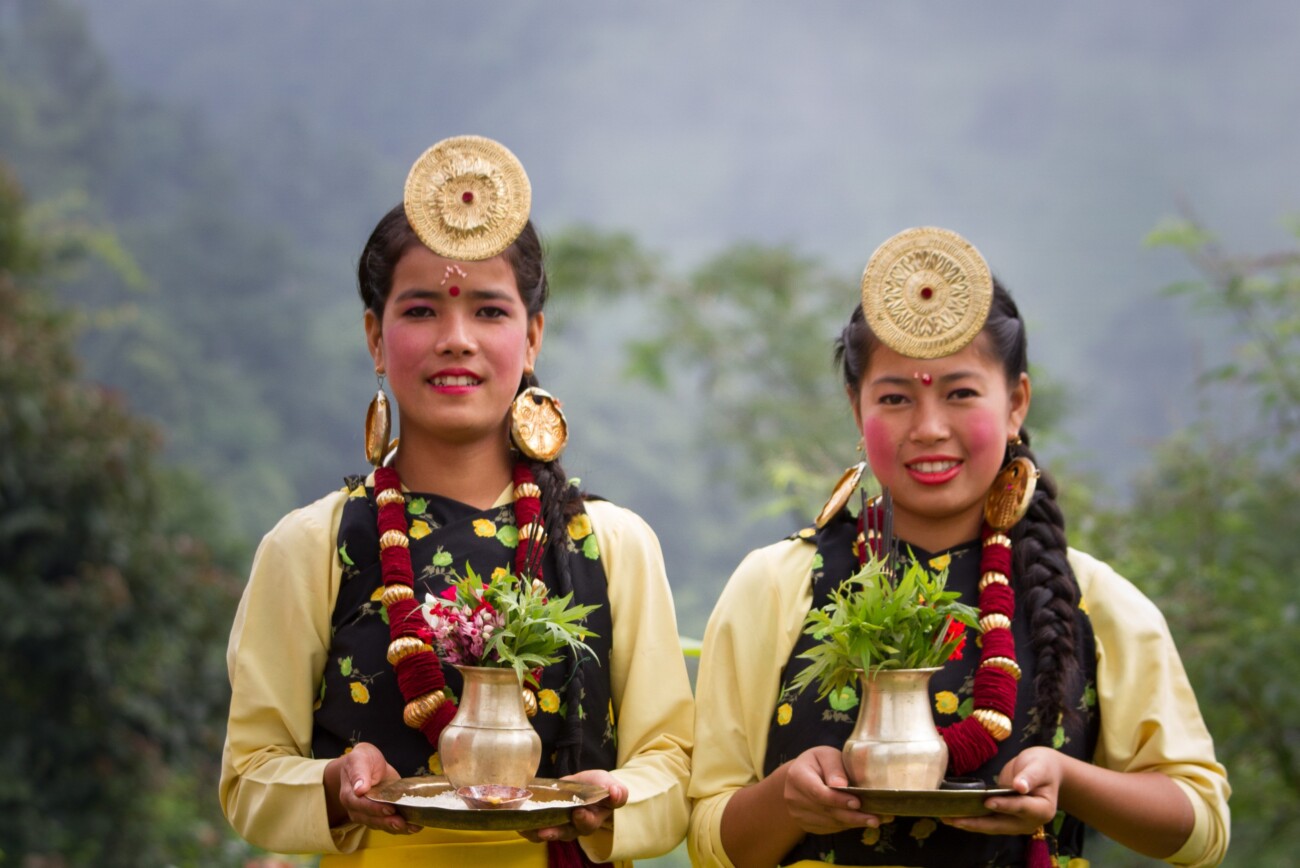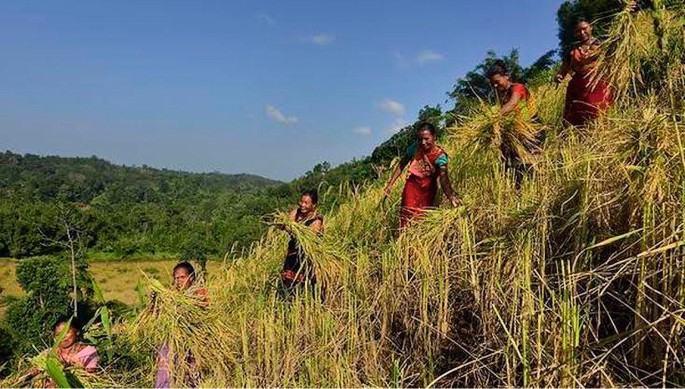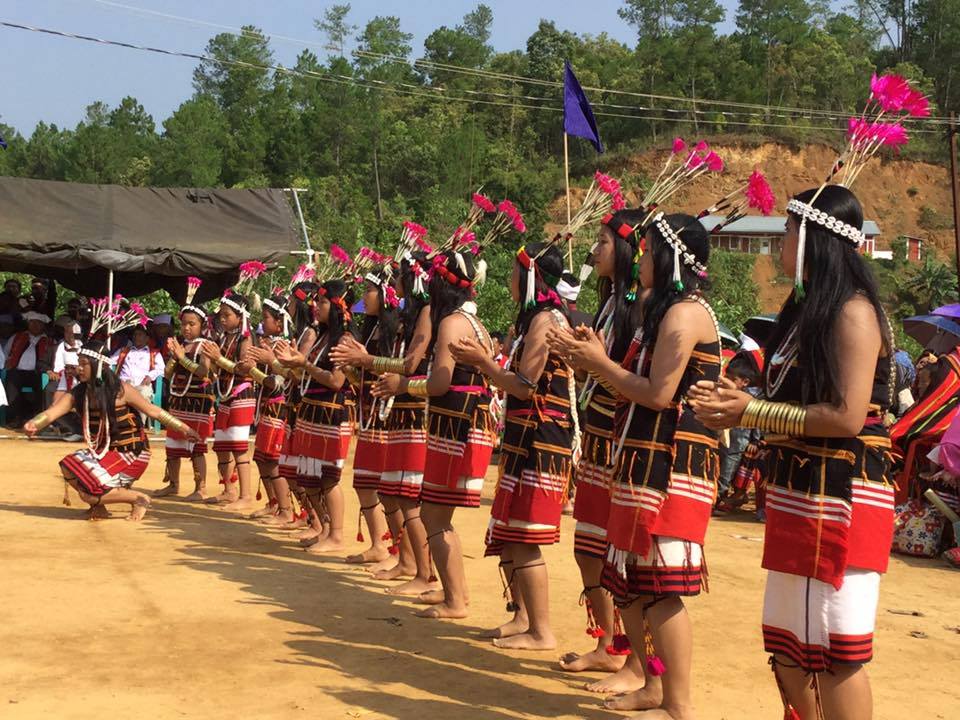By Sandhya Subba (Singzango)
Limbus are one of the autochthonous tribes with its own distinct culture, traditions, and religious belief. Limbus are scattered throughout the different parts of world like Sikkim, West Bengal, Assam, Meghalaya, Manipur States of India; Bhutan, Nepal, United Kingdom, Singapore, Japan, Korea, United States of America, Hong-Kong, Myanmar etc.
Limbus has a long tradition of narrating or reciting Mundhum (oral scripture) and performing certain rituals and observing ceremonies in their own distinctive ways.
Who Are The Tumyehangs?
They are the most notable, respected and resourceful people amongst the Limbu community. They are a socio-religious body consisting of community elders. They are the people who are good at Mundhum and rich in customary knowledge.
The Mundhum says, the Limbu people used to arrange meetings/Chumlungs to discuss on various issues and solve many problems. They used to work via work divisions. Later, they began to be called the sons of soil, LUNGBONGNA KHAMBONGBA. In this way, the people, who bear responsibilities in the society, are recognized as Tumyehang too. They seem to have been acknowledged as an institution within the community. They use to call for Chumlung/Sabha/ Council for the judicial works. The Tumyehangs e in our community still settle the disputes related to marriages, wedding ceremonies, death rites and almost all rituals and customs of the Limbus. They play a very important role during rituals like YUMSA (touching salt and oil), and KHA?OMA (death rituals). Tumyehangs also play the role of judiciary in disputes related to household shares, sharing land among siblings, land border disputes and determining areas of lands.
Few Examples of Rituals Where Their Role Is Important:
CHOKPHUNG: It is a process of adoption of a person from outside in order to include him/her in one’s lineage in Limbu community.
SHASING LAPMA: It is a process of adopting child. Tumyehang has a great role in this process.
KAAI SODHOK: It is invalid marriage/wedding within siblings or relatives. Such marriage/relationship is considered illegal in Limbu community. Tumyehangs do hear such cases and decide the punishments for such act.
Tumyehangs have a very important role in wedding rituals. Limbu Shamans conduct LAGAN (wedding rites) under the presence of Tumyehangs during the wedding ceremonies in Limbu community.
They are the ones who guide and check the work of Phedangma, samba and Yebas in our community. These days we see diminishing role and respect given to our Tu TuTumyehangs. Our Tumyehang system is getting weak due to less importance and encouragement given to this system. Our ritual works remain incomplete in the absence of Tumyehang, who are responsible for the rites as well as Judicial system..
There are many incidents in Mundhum highlighting the role of Tumyehangs and how they take the decisions coming from Almighty TageraNingwaphuma.
Today, our Tumyehang system needs more attention and importance. All Limbu scholars need to initiate more research and study of the system. Restoration of Tumyehang system in Limbu community opens door and scope for further research and explorations on Limbu culture, ancient knowledge, customs and Mundhum.
Our Tumyehang system needs to be more organized, systematic, strong, and reinstated in every Limbu village. This will develop consciousness and unity among Limbus. It will help us to make our customs and rituals general and common despite geographical constraints which could be followed by all the Limbus worldwide. Let us preserve, promote and develop our Tunyehang system in Limbu community. Despite knowing the importance, we see very little effort to study the Tumyehang system which is very disappointing.
Source::
Amrita Thebe, Tumyang Judiciary System in Limbu Community (A Customary Law).
Bal Muringla, Limboo Marriage: The Primitive Way.
Arjun Mabuhang, Limbu JatikoMundhum Ra Itihas.
Chaitanya Subba, The culture and Religion of Limbu






